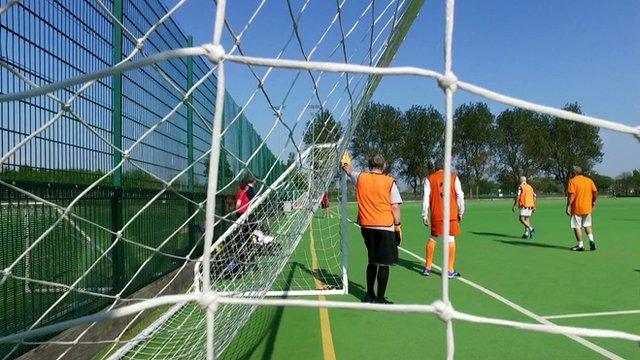Walking football 'has helped save lives'
- Published
Walking football: Wales and England set to meet
It has been hailed for improving health and combating loneliness - but for some, walking football was a lifeline in their darkest moments.
With an estimated 40,000 people now taking part every week across the UK, the sport is booming.
The first women's international match kicks off in Merthyr on Saturday, when England face Wales, as well as the first for men aged over 70.
But for many of those involved, it will mean far more than just a game.
The reasons for taking up the beautiful game are as varied as the individuals.
"Some of our members have told me that walking football has literally saved their life," said Hedley Austin, chairman of the Welsh Walking Football Association (WWFA).
"A lot of people come as medical referrals after suffering heart-attacks or strokes. For others it's the mental health benefits.
"Older people can sometimes feel lonely, isolated and some men who are retired or widowed feel they have lost their purpose in life.
"But this sport gets them out of the house, exercising and enjoying the camaraderie of team sports.
"That has meant so much to players who have suffered depression and suicidal thoughts. They said walking football gave them a purpose and a reason to live. It's truly amazing."
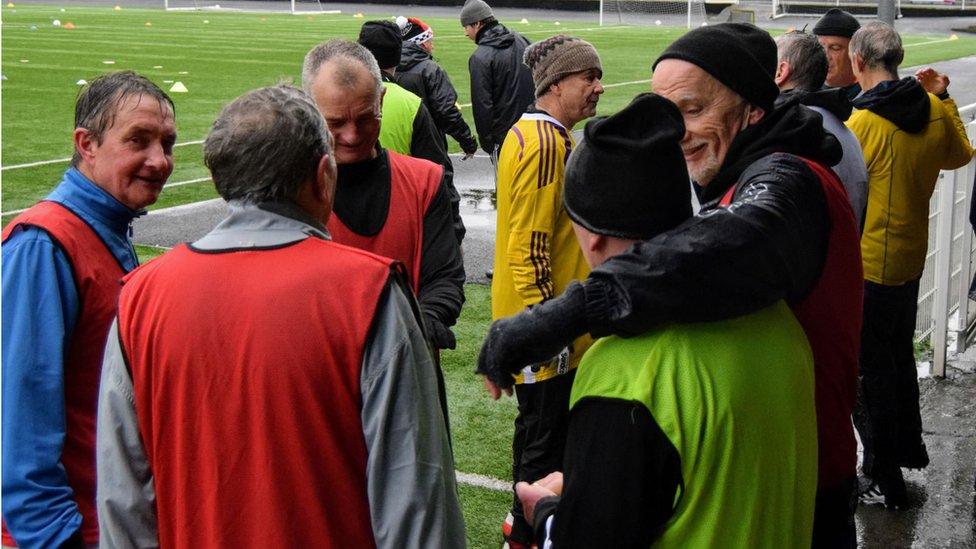
Walking football promotes health, social interaction and mental wellbeing
Liz Garvey, of Swansea, is one person who knows the healing power of the game.
She was diagnosed with post-traumatic stress disorder following her job as an emergency medical technician for Welsh Ambulance.
"It was a very tough time but walking football was a reason for getting out of the house, which I hadn't really wanted to do," she said.
"It's great exercise but it was the fun I had which made me feel much better."
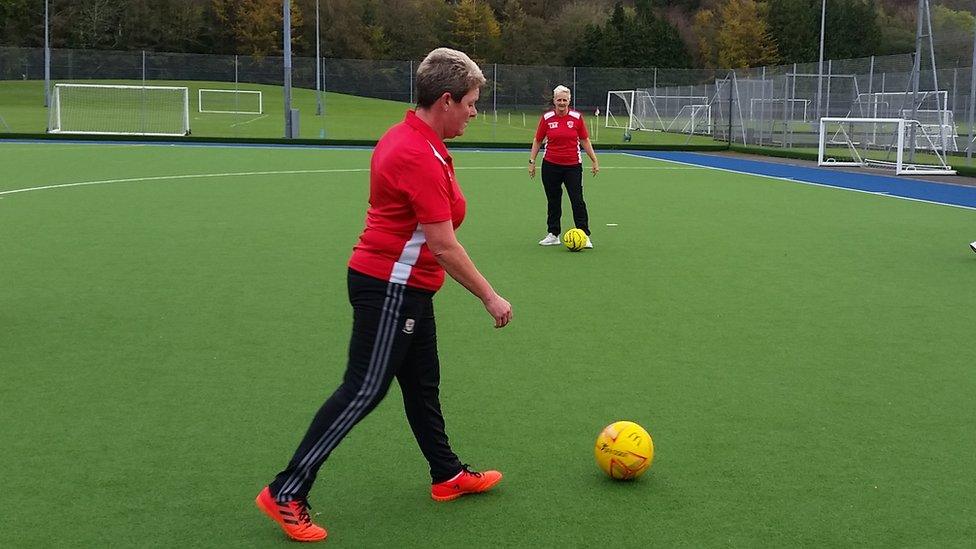
"I never thought I would get to represent my country at my age"
At 56, Liz admits she never thought she would represent her country.
But she will pull on the red shirt of Wales as the sport breaks new ground at Merthyr Town FC's Penydarren Park ground, external later.
Already well-established among men, Wales won the inaugural over-60s World Cup at Leyton Orient in June. Women will now compete at international level at over-40s and 50s for the first time.
Allow X content?
This article contains content provided by X. We ask for your permission before anything is loaded, as they may be using cookies and other technologies. You may want to read X’s cookie policy, external and privacy policy, external before accepting. To view this content choose ‘accept and continue’.
Natalie Kendrick-Doyle, 41, born in Manchester but living in Pontyclun, Rhondda Cynon Taf, will captain Wales after falling in love with the game after the first training session.
"When you get to a certain age your participation in team sport is limited because of the physicality," she said.
"I thought walking football was only for old men but it's a sport for everyone, age and gender is not a factor."

Basic rules of walking football
No running
Teams are six-a-side
Smaller pitch and goals
No physical contact
Players must not enter goal area
Matches played over two halves of 20-25 minutes

Lorraine Bridgman-Rye, 53, of Caerphilly, added: "I never thought I would pull on a pair of football boots again 20 years after I last played.
"But I was buzzing after the first game. I'd never laughed so much. Now we're going to be part of history."
Many well-known former footballers, including Sir Trevor Brooking, have sent good luck messages to the England and Wales teams.
The WWFA is hoping to expand the national league beyond the current 10 teams and the national teams have been invited to play in Spain, Sweden and Italy next year.
However the game is not limited to the elderly.
Alex Meah, 24, of Swansea, broke his leg playing Sunday league football but is so taken with the walking version, he is studying to become a referee.
"It has really helped with my confidence, especially the refereeing which has made me more assertive with giving decisions," he said.
"I hope more young people start getting involved. Even though it's not running, you still have to be fit."
- Attribution
- Published9 February 2019
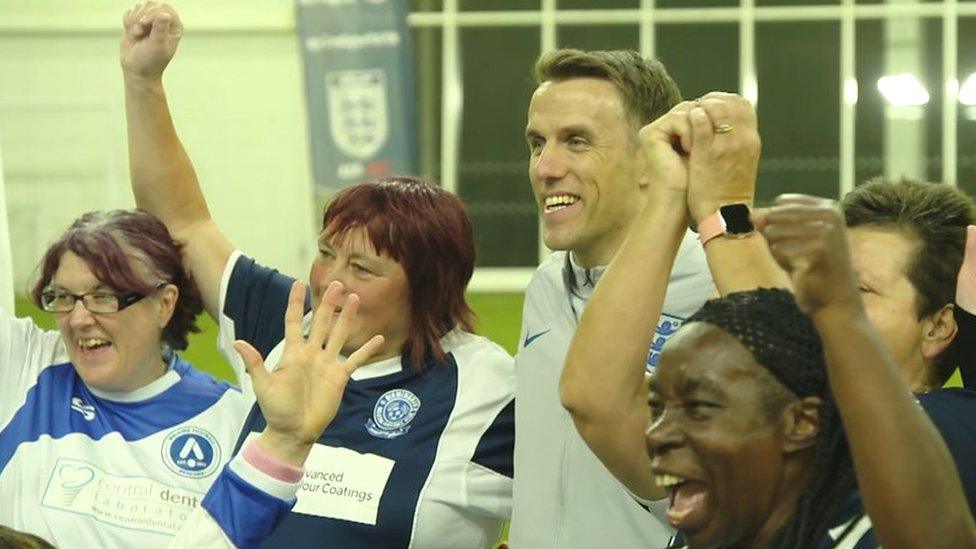
- Attribution
- Published2 February 2019
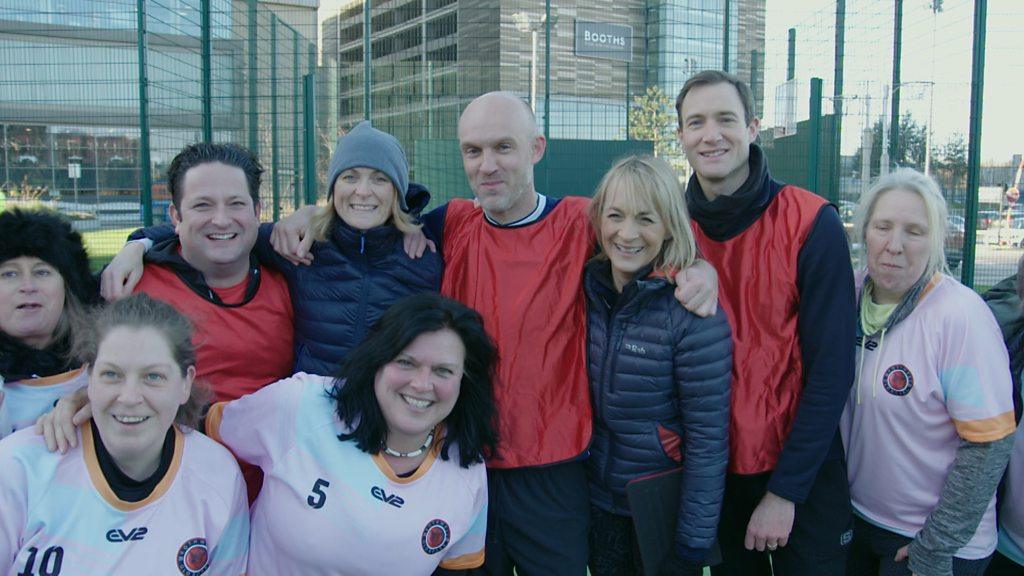
- Published18 January 2019
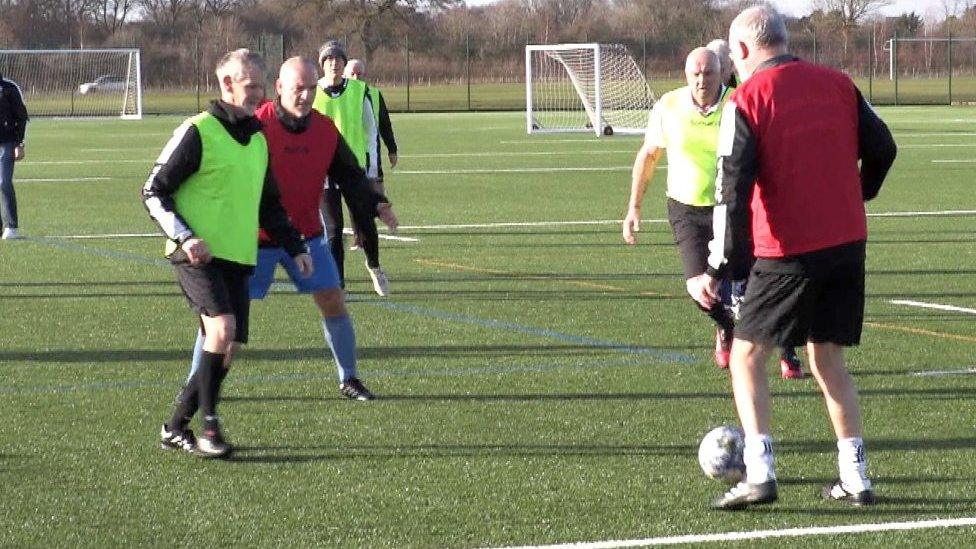
- Attribution
- Published23 June 2018
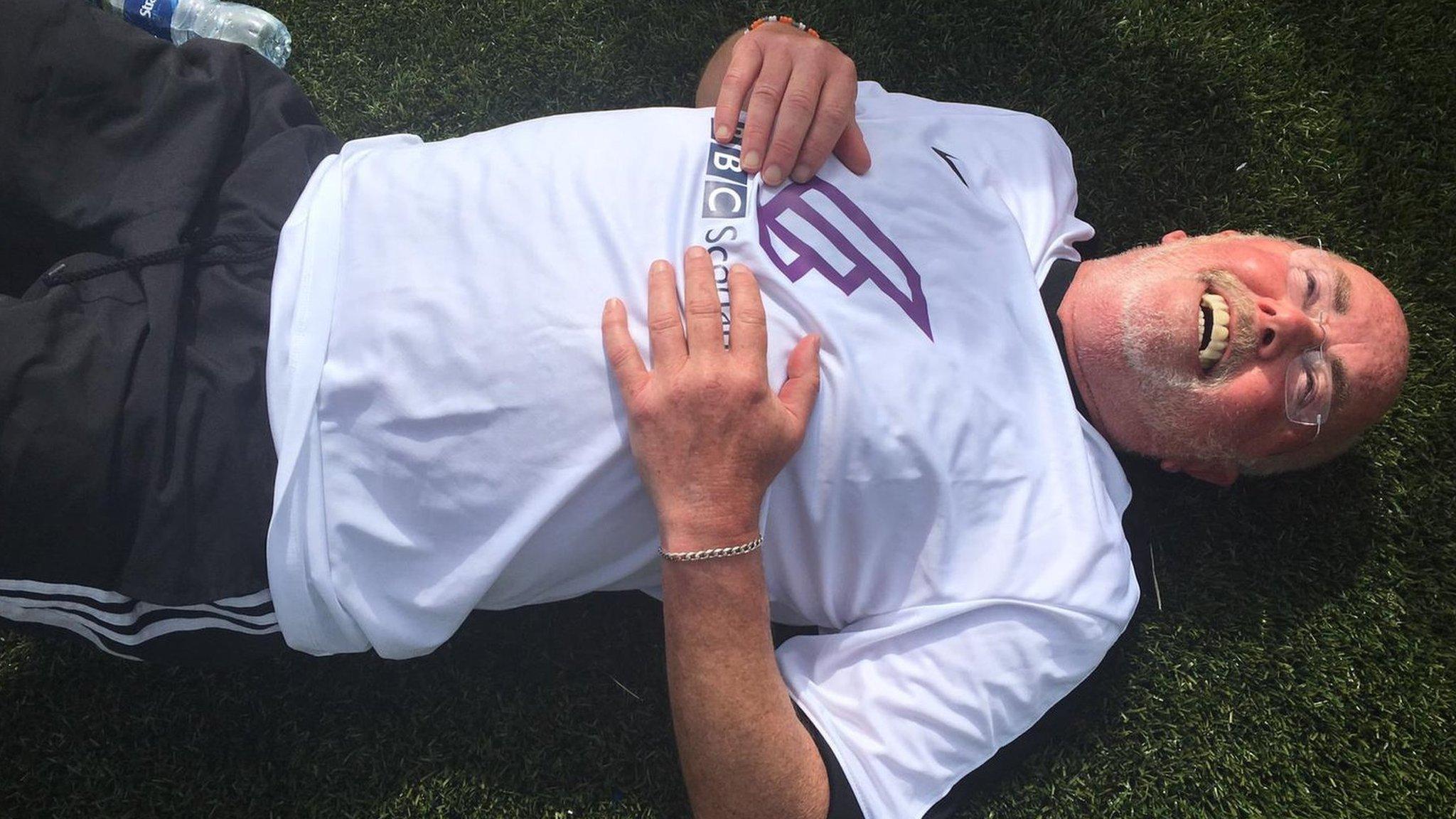
- Published12 October 2016
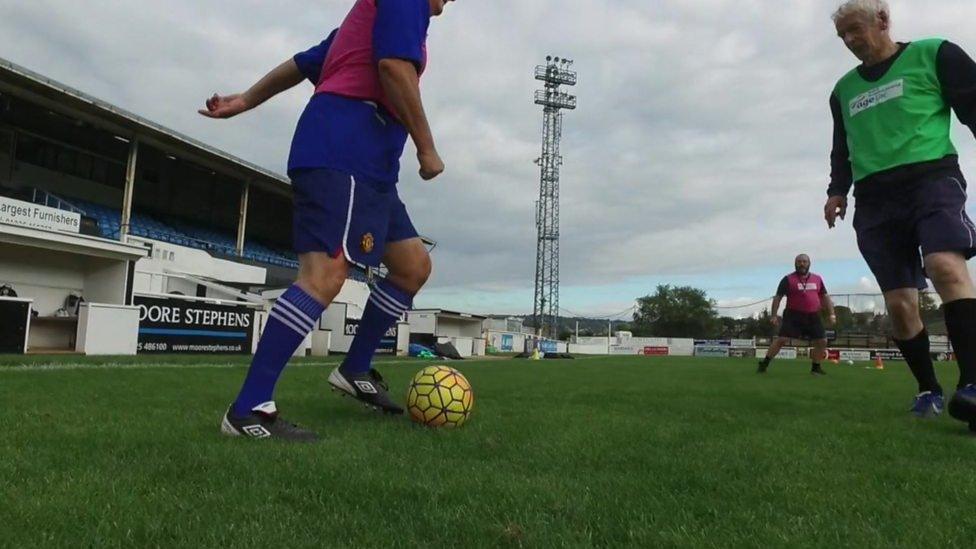
- Published19 May 2016
